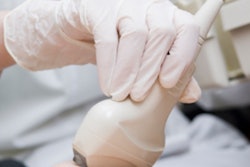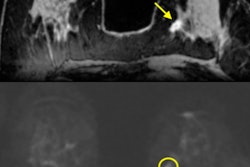Dear AuntMinnieEurope Member,
A lengthy article about the safety of gadolinium-based contrast agents appeared in a German newspaper last week. The headline referred to "a poisoned atmosphere in the (MRI) tube," and it followed an earlier article that boldly asserted "an MRI shot can be poisonous."
It's tempting to dismiss such material as sensationalism, but the important point is that many patients are reading these reports. Radiologists and radiographers must know what's being written about gadolinium and be prepared for the awkward questions. To read the Maverinck's new column, go to the MRI Community, or click here.
Another MRI-related topic being followed closely by patients is the death of a man pulled into the bore of a scanner in an Indian hospital. Click here for the latest on this story.
Meanwhile, a large U.K. trial has shown that extended ipsilateral breast ultrasound can detect many extra cancers compared with the standard screening protocol, but less effect was demonstrated for complete contralateral breast ultrasound. Visit the Women's Imaging Community, or click here.
Breast MRI has a high sensitivity, whether that's dynamic contrast-enhanced MRI (DCE-MRI) or diffusion-weighted imaging (DWI-MRI), but a drawback is that DCE-MRI tends to pick up everything -- benign or malignant. DWI-MRI doesn't detect everything, but it accurately distinguishes between benign and malignant breast lesions. Researchers from the U.S. and Austria have looked at what happens when these two techniques are put together. Get the full details here.
Hyperechogenic breast lesions are rare and described as generally benign; these lesions are often overlooked and a biopsy is not generally recommended. New research suggests it is not the ideal approach. Investigators found that hyperechogenic lesions can be malignant and must be imaged with that possibility in mind.
Finally, don't miss our case report about a 71-year-old woman found unconscious in her bed. This original case came from Dr. Fatih Seker in Heidelberg, Germany, who is a member of our editorial advisory board. Click here to test yourself.



















